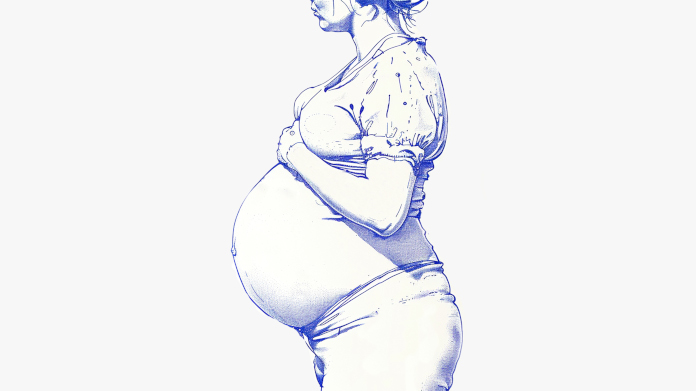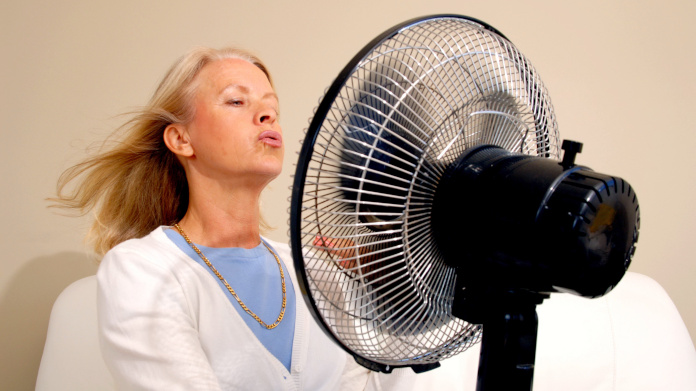5 natural treatments for endometriosis
Endometriosis is a chronic disease which affects a large number of women. Here are our suggestions for natural solutions to help alleviate the symptoms.

Endometriosis: what exactly is it?
An estimated 1 in 10 women suffer from endometriosis but how does the disease manifest?
Every month, hormones cause the endometrium (the mucous membrane that lines the uterus) to thicken in preparation for a potential pregnancy. In women affected by endometriosis, tissue similar to this membrane grows outside of the uterus in the wider urogenital area, resulting in intense, chronic pain, and possible infertility.
If you think you may be suffering from this problem, the first step is to consult a health professional. But there are also natural solutions that can help relieve the pain.
Modify your diet to combat endometriosis
The right diet can not only help reduce the symptoms of this disease but will also lower the risk of it developing (1-2).
Studies have shown the following dietary elements should be a priority:
- omega-3, the unsaturated fatty acids found in oily fish, linseed, rape seed oil … (or at optimal levels in natural supplements such as Super Omega 3)
- fresh fruits and green vegetables.
These same studies recommend restricting consumption of:
- red meat ;
- ham ;
- omega-6, other fatty acids found in vegetable oils apart from rape seed oil and olive oil.
In short, you should focus on fish, fruits and vegetables, and try to eat a balanced diet in general. And listen to your body’s signals: certain foods will affect certain women. If in doubt, eliminate a particular food from your daily diet to see how much effect it has on your endometriosis.
Put your faith in plants to ease the pain
Phytotherapy is always a good option for the body. All you need to do is choose the right plants … In the case of endometriosis, this means those containing anti-inflammatory compounds (3). Inflammation of the endometrium is actually one of the disease’s main characteristics and is responsible for the pain it causes.
A number of plants have anti-inflammatory properties:ginger (you can safely increase your intake by taking a supplement such as Super Gingerols), viburnum, Japanese mugwort, alchemilla, garlic ... But be careful not to take ginger or garlic during your period as these two plants also have a blood-thinning effect.
For endometrial lesions, try alternative treatments
Science has shown that various gentle medicines and techniques can help you manage your condition. Acupuncture for example, can significantly reduce endometriosis-related pain (4).
Mindfulness meditation also improves the symptoms of endometriosis and well-being in general (5). Yoga too reduces intensity of pain (6). These practices complement, rather than replace medical treatments, and as such, offer significant effects for well-being.
Discover the soothing benefits of melatonin
Melatonin can also help relieve uterine pain(7). In some cases, it can even enable women to take a lower dose of their conventional painkiller.
Studies also show that taking melatonin helps improve sleep in women affected by endometriosis, thus reducing the chronic fatigue they can suffer. It thus offers a significant dual advantage! To benefit from the properties of this unique substance, choose a supplement such as Melatonin.
Antioxidants to tackle endometriosis
Oxidative stress appears to be a key factor in severe endometriosis. When it comes to reducing the effects of free radicals in patients, certain molecules have been shown to be effective:
- resveratrol (available in Resveratrol Synergy) and EGCG (try Sunphenon® EGCg), epigallocatechins derived from tea, have also been shown to exert powerful antioxidant effects on lesions. Both reduce proliferation of cells and formation of the blood vessels that feed them;
- maritime pine bark (often known as pycnogenol, and available in the supplement of the same name Pycnogenol) also reduces the pain of endometriosis (10).
In summary then, the pain and discomfort of endometriosis is not inevitable. In addition to medication, there are natural solutions that can significantly reduce its impact on your quality of life. A well-chosen diet, appropriate supplementation and a calmer frame of mind can all make living with endometriosis much easier.
References
- F. Parazzini, F. Chiaffarino, M. Surace, L. Chatenoud, S. Cipriani, V. Chiantera, G. Benzi, L. Fedele, Selected food intake and risk of endometriosis, Human Reproduction, Volume 19, Issue 8, August 2004, Pages 1755–1759.
- Khanaki K, Nouri M, Ardekani AM, Ghassemzadeh A, Shahnazi V, Sadeghi MR, Darabi M, Mehdizadeh A, Dolatkhah H, Saremi A, Imani AR, Rahimipour A. Evaluation of the relationship between endometriosis and omega-3 and omega-6 polyunsaturated fatty acids. Iran Biomed J. 2012;16(1):38-43.
- Della Corte, Luigi & Noventa, Marco & Ciebiera, Michał & Magliarditi, Maria & Sleiman, Zaki & Karaman, Erbil & Catena, Ursula & Salvaggio, Calogero & Falzone, Giovanni & Garzon, Simone. (2019). Phytotherapy in endometriosis: an up-to-date review. Journal of Complementary and Integrative Medicine.
- Xu Y, Zhao W, Li T, Zhao Y, Bu H, Song S. Effects of acupuncture for the treatment of endometriosis-related pain: A systematic review and meta-analysis. PLoS One. 2017;12(10):e0186616. Published 2017 Oct 27.
- Mette Kold, Tia Hansen, Hanne Vedsted-Hansen & Axel Forman (2012) Mindfulness-based psychological intervention for coping with pain in endometriosis, Nordic Psychology, 64:1, 2-16.
- Andrea Vasconcelos Gonçalves, Nelson Filice Barros, and Luis Bahamondes.The Journal of Alternative and Complementary Medicine.Jan 2017.45-52.
- Schwertner, André & Santos, Claudia & Costa, Gislene & Deitos, Alicia & Souza, Andressa & Souza, Izabel & Torres, Iraci & Cunha Filho, Joao & Caumo, Wolnei. (2013). Efficacy of melatonin in the treatment of endometriosis: A phase II, randomized, double-blind, placebo-controlled trial. Pain. 154.
- A.G. Ricci, C.N. Olivares, M.A. Bilotas, J.I. Bastón, J.J. Singla, G.F. Meresman, R.I. Barañao, Natural therapies assessment for the treatment of endometriosis, Human Reproduction, Volume 28, Issue 1, January 2013, Pages 178–188.
- Kohama, Takafumi, Kotaro Herai and Masaki Inoue. “Effect of French maritime pine bark extract on endometriosis as compared with leuprorelin acetate.” The Journal of reproductive medicine 52 8 (2007): 703-8.
Keywords
2 Days
great products and prices
great products and prices
Marie
7 Days
Easy to navigate site
Easy to navigate site, had what I was searching for, good price. easy order-check out
James Tucker
14 Days
My skin is clearing up nicely!
Pretty good for my skin so far.
Christian
16 Days
The new packaging is excellent
The new packaging is excellent - finally! No more squashed boxes and torn envelopes.
GORAN
17 Days
Great Product
Great Product
Larry Garrett
21 Days
Quick shipping
Quick shipping; good price. No issues!
Mary McCarty
22 Days
Thr product is very good and is helping…
Thr product is very good and is helping me on my health. Then is always on time
LUGO Luz
25 Days
Buying was fine
Buying was fine. I had problems with the website not recognizing my login info, and had to call to get it fixed. Other than that, everything was good.
David S. Clark
25 Days
Your super maca and super ginseng are…phenomenal
Your super maca and super ginseng are phenomenal supplements that compliment each other when taking them together. Fantastic feeling of well-being and lots of mid day energy without the crash.
Keith Mason
28 Days
I have had amazing results with every…
I have had amazing results with every supplement I've purchased. I am extremely satisfied with this company
kirstin Torres
28 Days
Fine products
Fine products . They are on the leading edge of online supplements. The only issue -so far-is they sometime run out of subscription items.
Jason Argos
31 Days
The ordering process is very user…
The ordering process is very user friendly and the products always come in a timely manner.
CARTER Rhonda
32 Days
The price for Dr
The price for Dr. Pero's AC-11 is reasonable and in line with his views. (my former colleague). Keep it pure.
CAMPBELL Clayton
35 Days
Right on every time.
Right on every time.
Arthur Nicholas
37 Days
They are cheaper than everyone else and…
They are cheaper than everyone else and the shipping was fast. Great company.
Patricia Adams




